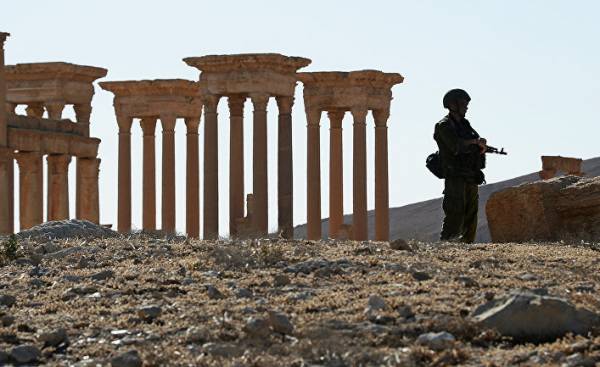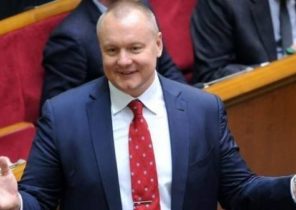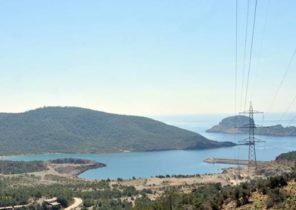
In June, Russia, Turkey and Iran signed an agreement on the establishment of “zones of de-escalation” in Syria. The intermediary in this transaction, and sponsored by the Russian side. According to the clauses of the agreement referred to therein four areas in Syria are not “security zones” and “zones of tension reduction”. In other words, the agreement constitutes the embodiment of ideas than the concept of safe areas, the implementation of which within a certain period of time has made the Syrian opposition.
In international law there is no such legal definition as “the zone of de-escalation”, as such terms are widely used in the military sphere, not in legal acts. For this reason, such language is always vague and can have different interpretation and interpretation. However, they are most preferable for Russia, which received daily accusations from Syrian and international human rights organizations. In particular, Moscow is accused of committing war crimes against the local civilian population and crimes against humanity in Syria, especially in Aleppo.
The new agreement reflects the role played by negotiations in Astana, the recently concluded without achieving any significant results. While Russia is struggling to allocate these negotiations against the background of the negotiation process in Geneva and thus ensure that Astana became the place of discussion of the peace process in Syria. So, the Russian side tries to de-legitimize any efforts by the United Nations in Geneva, and most importantly, to gather at the negotiating table the part of the Syrian opposition, which wants to deal with.
Russia claimed, in particular, following the battle in Aleppo, which focused mainly on the establishment of a cease-fire throughout Syria, and to this end, along with Turkey and Iran organized the negotiation process in Astana. As a consequence, the main aim of the talks in Astana is the establishment of the ceasefire in accordance with the agreement concluded between Russia and Turkey at the end of 2016. As for the ceasefire itself, the most noteworthy is the fact that the forces controlled by the Assad regime has never abided by this regime, and of aerial bombardment in the Eastern ghouta never stopped, and today they continue in Deraa and other areas controlled by the opposition. In addition, it has to be forced migration of Syrian citizens, which occurs at a larger scale than in the past. It happened in the al-vair in HOMS and four other cities, such as Madai, Zabadani, Foix and Kefra, whose residents were forced to leave their homes because of the policies of the Assad government. Finally, do not forget about the use of chemical weapons in Khan Sheyhun in Idlib province. In this regard, the question arises: if all of these actions, including the use of military Arsenal, was made in a silence period, is it possible to believe that the parties respect the cease-fire? Anyway, we can assume, what will be the degree of respect of the parties to the new agreement.
However, Russia denied the statement about the failure of the cease-fire and insisted on continuing the negotiation process in Astana. Later for another round of talks in Astana, which took place in may 2017, Moscow has put forward a new idea of creation of so-called “zones of de-escalation”. The United States refused to support the new agreement for the reason that one of the guarantors was to speak of Iran. According to the statement of the US state Department: “the Iranian activity in Syria only contributed to the violence, not its cessation, and the unconditional support of the Assad regime, Iran was the cause of the tragic situation in Syria.” The US state Department has not commented on the beginning of the creation of “zones of de-escalation” in Syria. However, although in his statement and voiced criticism of Iran, he welcomed all efforts that can contribute to ending violence in Syria today.
We can conclude that the role of Russia in Syria has changed: the political process gave way to paramilitary actions in order to reduce the bloodshed in the country, due to the belief of the Russian side that the start of a political process in Syria today is impossible. Russia sponsored talks in the capital of Kazakhstan. So, beginning the political process was to give the writing of a new Constitution of Syria, in the drafting of which was attended by the Syrian armed opposition, “to speed up political negotiations to end the conflict”, as stated by the messenger of the Kremlin. In this regard, the question arises: why Russia decided to start with the most sensitive of any nation point, because the Constitution of any
the state reflects its main values? From the very beginning of the Syrian conflict in 2011, Russia each time repeats that the case of the Syrian people, and insists at every opportunity that the settlement of the conflict must be political and to find a solution should the Syrian people. At the same time Russia itself has developed a draft of the Syrian Constitution, and then submitted it for discussion and approval to the Syrians. This project was prepared by Russian experts after two days of indirect talks between the Syrian armed opposition and representatives of Assad’s regime, but without any signs of progress in the broader political settlement to end the war. And suddenly, Russia did not aim at the establishment of the ceasefire regime, which the Syrian regime has violated nearly every day, in all regions of Syria. Moscow was no longer focused on compliance with the terms of the agreement with Turkey, which is also supported by the opposition, hoping that the situation “on the ground” will change after a complete cease-fire that will allow you to focus on other important for the Syrians problems such as the problem of refugees and the humanitarian situation in the country. Instead, Moscow has begun work on a new Constitution and submitted it for consideration to the Syrian people.
The Russian proposal to draft a Syrian Constitution came as a surprise. No less noteworthy is the form in which it was put forward this proposal during the talks in Astana. So, one might think that Russia imposes to the parties the initiative, given the fact that it is the largest military player in Syria. After the Russian military intervention in September 2015, as well as the withdrawal of the United States from the region, especially after the election of President Donald trump, Moscow became the main military and political “machine” in Syria. Trump has followed the policy of isolationism with the sole focus on the fight against “Islamic state” in Syria.
With certainty we can say that Moscow’s proposed text of the Syrian Constitution reflects the Russian point of view on the way should be reached a political settlement in Syria, and this decision was made without adoption by the parties of any obligations “on the ground”.
The proposed draft Constitution, which, according to the Minister of foreign Affairs of Russia Sergey Lavrov, was prepared by the Russian experts, contains language almost identical to those that exist in the Constitution of the Russian Federation adopted on 12 December 1993, and their preamble are almost identical. The same applies to the titles of the chapters of the Constitution and distribution of powers between the organs of one or another branch of government.
In Russia put forward a Constitution based on the idea of ethno-religious pluralism, and the text ends with the introduction of the principle of allocation of Ministerial posts for religious and ethnic minorities, that is reminiscent of political systems of Lebanon, Iraq, Northern Ireland, Bosnia and Herzegovina. However, none of these systems based on the principle of ethno-religious quotas have not succeeded in ensuring political stability of the regime or achieving economic growth. These systems are paralyzed instead give the opportunity to move to a fully democratic regimes.
Thus today Russia is the only country that comes up with initiatives on Syria. This applies to negotiations in Astana, the nomination of the new draft of the Syrian Constitution, as well as the idea of creating “zones of de-escalation”. Anyway, all of these initiatives represent attempts by Russia to withdraw from Syria with the least losses, while achieving a preserve Assad in power as the only tool to protect their interests in the region.







